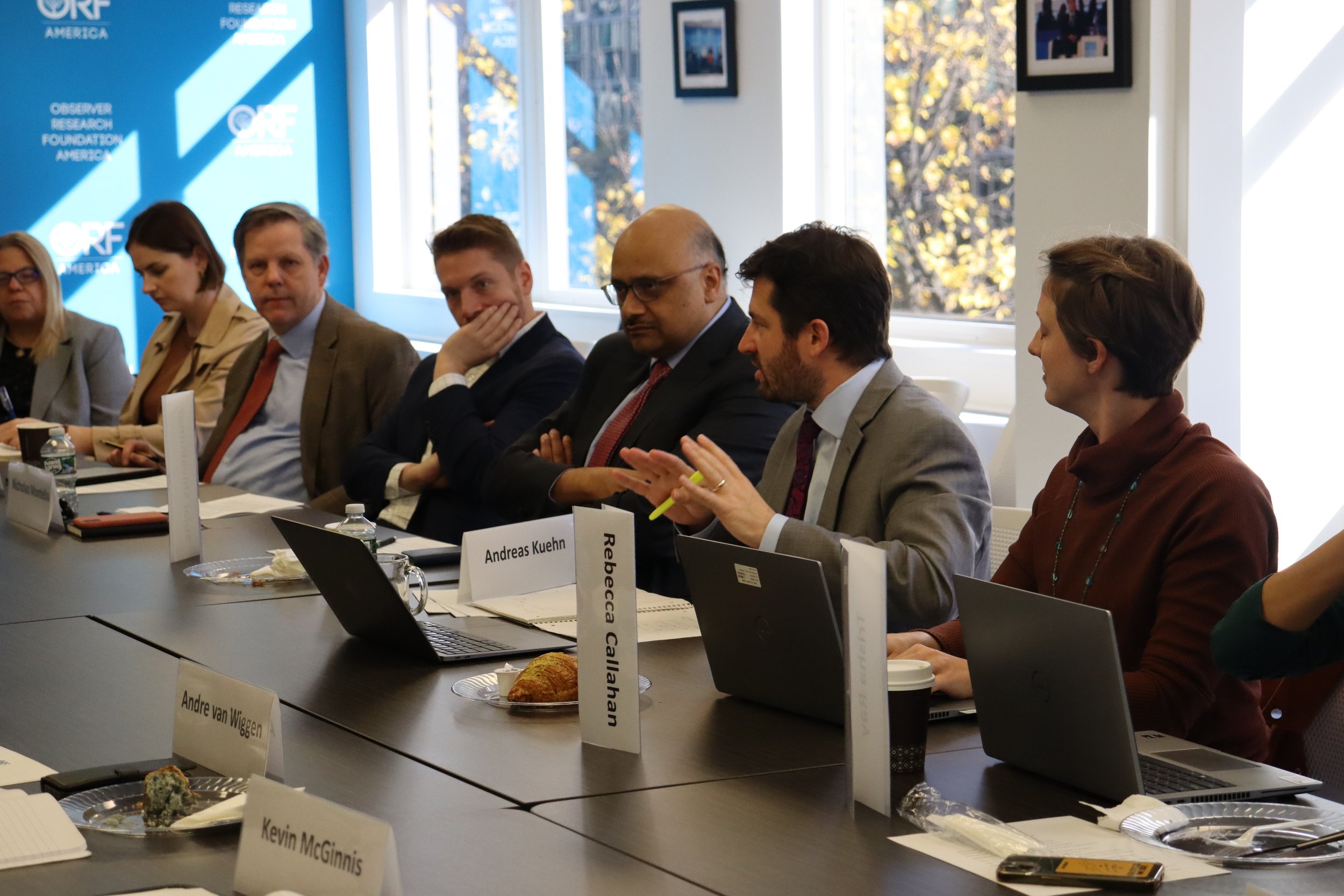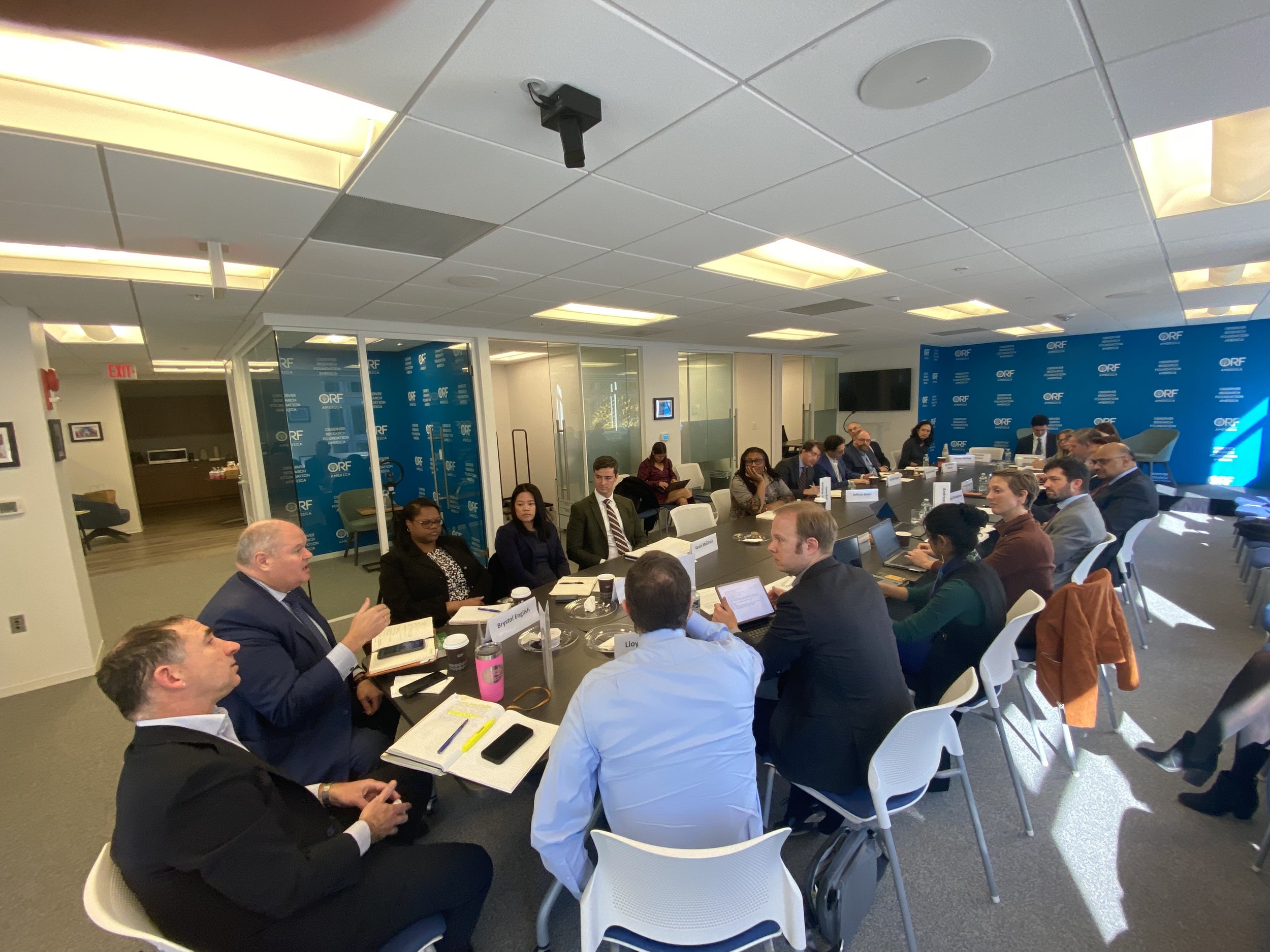On November 8, ORF America hosted the fourth Chips for Breakfast, a private roundtable to facilitate frank conversations among a select group of U.S. and foreign government officials, industry representatives, and policy experts about the current state of U.S. semiconductor policy, technology leadership, and collaboration with like-minded partners to strengthen international commerce and security.
With numerous countries seeking to attract semiconductor investments at home through various “Chips Acts,” a preeminent challenge arises: the operation of new semiconductor manufacturing facilities will require a stable supply of skilled human resources, technical experts, and STEM talent. The United States alone will need 115,000 new personnel to drive chip design and operate new front-end and back-end facilities as new capacity comes online, 67,000 of these jobs are estimated to go unfulfilled given current constraints.
Challenges on talent and workforce development include how to stimulate interest in STEM broadly, but also the semiconductor industry specifically, and how to mesh local and regional undertakings with national and international initiatives. In the United States, key institutions including universities, engineering schools, and community colleges, chip companies, state and federal government, as well as the National Science Foundation, have stepped up their efforts in addressing the projected workforce shortfalls. Despite U.S. executive branch efforts to leverage existing immigration pathways, congressional action on immigration policy is required to fill much needed talent in the short term. Crucial in these efforts are aligning local, regional, national, and global contributions, ranging from training to certification to attracting underrepresented talent and communities to meet the demand in the U.S. and globally.



